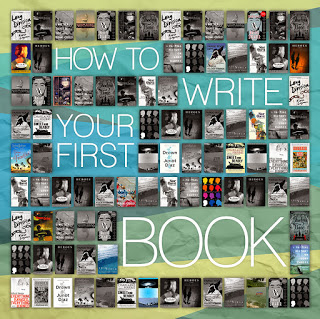
Two Years of Living Dangerously—Trickster
It was March, 2020 when the WHO declared Covid-19 a pandemic. By then most everyone already knew this virus was deadly and mysterious.
By that time in March, I’d finished Bad Axe (Thorn’s 15th outing) and was beginning the next novel. Though I did not have Covid in mind as I worked on those early drafts, I now see it was impossible to avoid Covid shaping the storyline and theme of the new book.
The earliest version of Trickster started with a good 20 pages of Thorn’s ruminations about being even more isolated than usual. Just as you and I were more isolated than usual.
All Thorn’s friends were out town. He had no love interest. He’d lost his joy in reading. The bars were too loud. The weather was too stormy to fish. And on and on and on.
My friend and fellow writer, Les Standiford, calls this “throat clearing.” What a speaker does as he stands at the podium before he begins to actually give his talk. 20 pages of throat clearing was what I had done. I’d forgotten a basic rule of good writing.
I used to warn my writing students about this bad habit. I called it ‘the bathtub’ problem. So many of them started their stories with their protagonist in a bathtub (or some other isolated location) and their character was thinking, thinking, thinking, thinking. Throat clearing. Their stories just never started. Action is interesting, thinking not so much.
The remnants of that 20 pages of introspection and self-pity is still in the finished novel, but I chopped away 90 percent of it and that passage ends with a flourish—Thorn goes fishing in a deluge! And we’re off.
In March, 2020, most of us were living Thorn’s life. Thinking way too much. Socially distanced to the max. Wary, watchful, uncertain, on edge. How could all that not find its way into what I was working on for hours every day?
I see that now, but had only a faint idea at the time Trickster was starting to unfold. You’d think after writing 21 novels, I’d know how to do it. Not so. I have to relearn everything each time out.
Here’s one of those things: There are only two plots. A stranger comes to town. And a woman goes on a journey. Of course, those are two sides of the same story. The stranger who comes to town is that woman who’s on a journey.
When that stranger comes to town, her presence upsets the balance that existed before, and that starts the chemical reaction of a story. Or when a woman goes on a journey what she encounters on the road changes her and starts that chemical reaction.
In Trickster a teenage girl shows up at Thorn’s isolated retreat. Thorn doesn’t know who she is. I didn’t know who she was. The girl said her name was Stetson.
She was a smartass and she mocked Thorn mercilessly the way certain teenagers can mock certain adults. But I still didn’t know who she was. Was she a virus come to infect Thorn and fill his lungs with goo? I didn’t know.
When she leaves Thorn’s house after their initial meeting, I still didn’t know who she was. Neither did Thorn. Thorn wanted to find out who she was. So did I.
Thorn followed a series of steps to track her down. And I followed behind him, just as intrigued as he was. I wasn’t leading him, he was leading me. And Stetson was leading both of us.
Now, there are writers who use extensive outlines. Some never write the first sentence until they know the last sentence.
I’m not one of those. I agree with Elmore Leonard’s wisdom on this issue. When asked if he used an outline, he like to say, “Why would I write the novel if I knew how it was going to turn out?”
I figure that If I’m eager to learn who Stetson is, it’s likely that my readers will be similarly eager to discover her identity and learn why she showed up at Thorn’s.
Eventually, what Thorn discovers about Stetson leads him to discover a wider web that has been invisibly ensnaring him for years. Much of what Thorn believed to be true about his own past is called into question.
I see now that Covid was in some ways infecting even this part of the plot. We had all been merrily going about our business, sitting shoulder to shoulder with strangers in movie theaters and auditoriums and restaurants and on airplanes without ever considering how our inhalations were tainted by their exhalations and vice versa.
But Covid made us all re-evaluate close contact with others. Made us question our long held habits and pleasures. Made us look at strangers with suspicion.
I used those two years of isolation to create a story about those two years of isolation.

Covid humbled us all, made us realize we are part of a larger, inter-related world that controls our destiny in small ways and large ones. We were never as free as we imagined.
But one of the great gifts of novels is that they end. If they are any good, they come to a satisfying conclusion and set the world right again, rebalance all that was thrown off kilter. Good novels give order to the chaos if only temporarily. They inoculate us and boost us for a time against the dangers that are swarming all around us.
Next Week I’ll Return to the Throwback Routine With Buzz Cut, Thorn’s cruise ship voyage.



